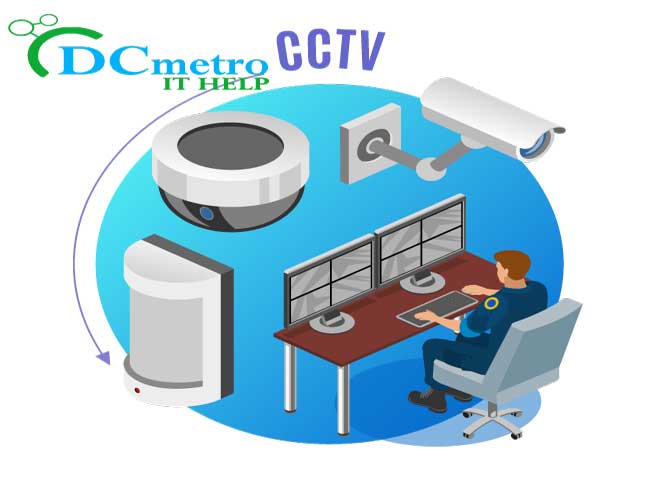In the era of digital transformation, security has become a paramount concern for individuals, businesses, and organizations alike. Among the various tools and technologies that contribute to ensuring safety and surveillance, IP cameras play a crucial role. These advanced cameras, capable of capturing high-quality video and transmitting it over IP networks, have revolutionized the field of security monitoring. However, the successful implementation and maintenance of IP cameras require the expertise of skilled professionals known as IP camera technicians. In this article, we will delve into the vital role these technicians play in securing our digital age.
Contact us 202-810-7755 today to learn more about IP Camera. Please contact us for setup IP Camera for your business or if you have any questions or concerns.
DC Metro IT Help
Understanding IP Camera Technicians: An IP camera technician is a trained professional responsible for the installation, configuration, and maintenance of IP-based surveillance systems. Their expertise lies in integrating these sophisticated cameras into existing networks, ensuring seamless communication and effective monitoring capabilities. These technicians possess a diverse skill set, combining knowledge in networking, computer systems, and video surveillance technology.
Installation and Configuration: One of the primary responsibilities of an IP camera technician is to install and configure IP cameras according to the specific needs of the environment. This process involves careful planning, where technicians assess the location, determine the number of cameras required, and establish optimal camera placements for maximum coverage. They handle tasks such as mounting cameras, running cables, and establishing network connections. Additionally, they configure camera settings, including resolution, frame rates, motion detection, and other advanced features to meet the security requirements of the space.
Network Integration and Troubleshooting: IP cameras are designed to transmit video data over computer networks, which necessitates integration with existing network infrastructure. IP camera technicians possess in-depth knowledge of networking protocols, IP addressing, and network security measures. They ensure the smooth integration of IP cameras into the network, configuring switches, routers, and other network devices as needed. Moreover, they conduct comprehensive testing to verify connectivity, reliability, and video quality. In the event of any network issues, these technicians troubleshoot and resolve problems promptly, minimizing downtime and ensuring uninterrupted surveillance.
Maintenance and Upgrades: The work of an IP camera technician does not end with installation and configuration. They also play a vital role in the ongoing maintenance and upgrades of IP camera systems. Regular maintenance activities include cleaning camera lenses, adjusting angles, and inspecting cabling to prevent potential issues. Technicians also conduct software updates to ensure cameras are equipped with the latest security patches and firmware enhancements. Furthermore, as technology evolves, IP camera technicians stay up-to-date with emerging trends and advancements in surveillance systems, enabling them to recommend and implement upgrades to enhance security capabilities.
Security Optimization: IP camera technicians are knowledgeable about various security practices and protocols that protect camera systems from unauthorized access and potential vulnerabilities. They implement robust security measures, such as strong password policies, network segmentation, and encryption protocols. Technicians are also well-versed in analyzing camera footage and configuring advanced features like motion detection, video analytics, and remote monitoring to optimize the effectiveness of the surveillance system.
In the digital age, IP camera technicians serve as the backbone of secure surveillance systems. Their expertise in installation, configuration, network integration, troubleshooting, maintenance, and security optimization ensures the effective operation of IP camera networks. By leveraging their skills, organizations and individuals can safeguard their premises, assets, and personnel. As technology continues to advance, the role of IP camera technicians will remain critical in adapting and harnessing the potential of IP-based surveillance to meet the evolving security needs of our modern world.



Leave a Reply